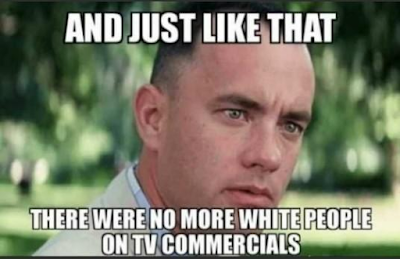…in which the vast majority of serfs people never actually own anything, but rent everything. We’ve seen this trend in innocuous stuff, of course, such as in the online music business where the foul recording industry can take (i.e. repossess) music away from purchasers simply by removing it from “The Cloud” and similarly in TV shows and movies, where the equally-foul studios can do likewise. (Consumers owning the physical media of CDs and DVDs has always been the bane of the respective industries’ profit plans, both because they can’t control “unlicensed” third-party distribution and because once the sale is made, they can’t claw it back.)
According to Big Business, therefore, property is theft (of the products they consider their own, and not the purchasers’), a sentiment which would have made that foul mountebank Proudhon rub his hands with glee — except of course that he wanted “the people” (i.e. the State) to own everything rather than giant corporations (in his time, the Church).
So what’s brought this rant on? The Germans — or, to be more specific, the German auto industry. Try this little scenario on for size (courtesy of Insty):
Volkswagen recently announced that it plans on making massive amounts of money by introducing more vehicles with over-the-air updates (OTAs), many of which will be able to store and transfer personal profiles so that users can effectively just rent their vehicles for eternity. Additionally, VW has suggested future models will have ability to lock features (that have already been physically installed) behind a paywall that users can unlock via subscription services — things like heated seats, satellite navigation, or even the vehicles top speed.
“In the future, our customers will buy, lease, share or rent cars just for a weekend, and we can use software to provide them with whatever they need over the air,” VW brand’s sales chief Klaus Zellmer said during an online presentation held on Tuesday. “The ID family has been designed for further development, with OTA updates to improve the software’s performance and tailor it to our customers’ needs.”
Other German automakers have pitched (or introduced) similar concepts over the last few years and it smacks of the terror that is the World Economic Forum’s “Great Reset” — a plan which envisions a near future were the general populace owns nothing and giant multinational corporations (and their heirs) effectively hold all the cards. It’s the kind of thing one might call you an unhinged conspiracy theorist for believing, until you head over to the WEC’s website to read a dozen or so articles explaining exactly how it’s to be implemented or notice that most Western governments seem to be pushing some variant of the “Build Back Better” campaign. The plot is often the same and hinges upon prioritizing stringent social controls, increased government spending, collaborating with large businesses/banks, and enhanced surveillance in exchange for some vague promises about public safety and environmental reform.
Not content with adding a whole slew of “conveniences” (unnecessary geegaws like remote starting, keyless- and stop-start ignition, “memory” seat adjustment and such) to their cars, said conveniences which simply drive up the cost (and profits) of cars into the fucking stratosphere, these bastards now think they can sell the cows and charge the owners for the milk they draw, ad infinitum.
Yeah, well, maybe not. I’ve been a lifelong fan of Volkswagen, having owned seven of their various models over the past forty years, but I have to tell you right now: when it comes time to replace the Tiguan — and it’s going to happen soon — it’s not to a VW dealer I’ll be going. No way am I going to give them any of my hard-earned dollars to support their evil machinations. Ditto Mercedes (I’ve been looking at their GLA 250 mini-SUV), or any other car company which wants to initiate a similar program to Volkswagen’s.
Given my age, this will most likely be my last-ever purchase of a new car; and I was planning on driving it for at least the next decade, or until my brain turns to rice pudding and, not needing a car anymore, I would have to be installed in some care facility which would feed me, wipe my decrepit ass and put up with my incoherent ranting and raving.
But that’s a topic for another time.
In the meantime, I’m going to shop for a new / low-mileage secondhand vehicle, just not of the VW / Mercedes persuasion.
Does anyone know which auto companies don’t plan on this thievery?




